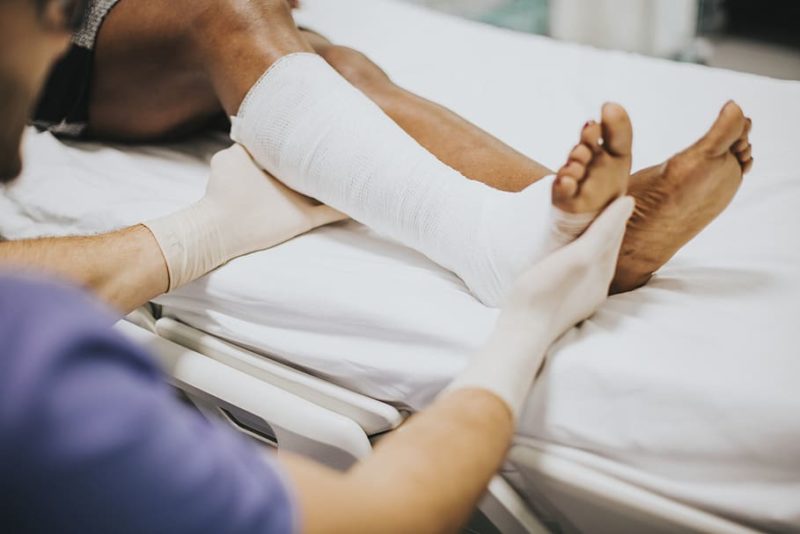Shabana Mahmood Member of Parliament for Birmingham Ladywood

We’ve seen a major development in the cladding scandal that has blighted our community this week, with the UN declaring that the UK Government’s failures to remove flammable cladding from high-rise buildings across the UK in the wake of the Grenfell disaster may be a breach of international law. I have been campaigning for a long time on the failure of the Government to take action, which has left leaseholders in my constituency not only fearful for the safety of themselves and their families, but also landed with staggering bills for remediation works and rocketing insurance claims. International law stipulates that everyone has the right to an adequate standard of living and that housing should be habitable whilst also protecting the inhabitants physical safety. The UK ratified the international covenant in which this stipulation is found and that they must make every effort to discharge their obligations. The Government have spent less than a quarter of what had been promised to replace dangerous cladding and in dragging their heels are now not only breaching fundamental British values of fairness and justice but are also at risk of breaching international law. The full story can be read in the Guardian here.
On Tuesday, I joined a zoom meeting with the Public Accounts Committee. I wanted to ask Dr Jo Farrar, the Chief Executive of HM Prison & Probation Service, about the mental health of prisoners during this crisis. It’s been incredibly difficult for so many of us, with workplaces and social spaces closed to us and most of our time being spent in our homes. For prisoners whose space is a small cell, this must have had a significant impact on their mental health. Dr Farrar explained that prisons have been working with those in the prison system to ensure that their mental health is looked after, with distraction packs and close collaboration with mental health practitioners. We have a duty of care to those within the prison system and an important part of lowering reoffending rates is ensuring that mental health is a priority.
The coronavirus has had serious consequences for our creative industries. I wrote this week to the Minister for Digital and Culture, Caroline Dineage MP, about support for regional theatres in the wake of the pandemic. Our creative industries are an important part of our economy, our cultural life, and our mental health. It’s been fantastic to see the productions that have been streamed into homes throughout this crisis, from comedy to musicals, from Shakespeare to ballet and we need the Government to support these industries through this difficult time. While the London theatres are obviously important for the tourism industry and the most well-known, our regional theatres have a huge impact on the economy of their respective cities and must not be allowed to fail due to inadequate intervention. Birmingham Hippodrome is one of the UK’s busiest multistage theatres and welcomes over half a million visitors each year. Their Projects programme works with schools, colleges and community groups to bring the joys of theatre to a wider audience. We simply cannot lose these regional gems.
As we begin to reopen schools and workplaces with strict social distancing and hygiene measures, we need to think about the economy that we want to build post-Covid. Unfortunately, I was not called to speak in the House of Commons on this topic this week, but I wanted to ask the Transport Minister about developing the National College for Advanced Transport and Infrastructure that we have in our constituency. Just 187 students out of 600 are attending the college and the Transport and Education departments need to work together to ensure that the major progress in skills and employment we were promised through the HS2 rail project are actually delivered. One of the key benefits of this project is the creation of skilled jobs in the West Midlands and this is even more important in the current climate. We need to rebuild our economy in a way that ensures that there are skilled jobs available to contribute both to the social and economic rebuilding of the region.
This Sunday, the 5th of July, we mark the 72nd birthday of the NHS. It’s very easy to take something for granted that we experience every day without having to think about it not being there, but this crisis has, I think, shown all of us just how important the NHS is to us. The provision of free healthcare and the ability to call for help without worrying about how to afford it is something that is special and that we are extremely lucky to have in this country. This Sunday at 5pm, I will be applauding the dedication, courage, and sacrifice of all our wonderful NHS workers, and saying thank you to all who have worked within the service over its remarkable 72 years.
As ever, if you have any issues or concerns to raise with me as your local MP, please get in touch by emailing shabana.mahmood.mp@parliament.uk or by calling 0121 661 9440. My team and I are of course subject to many of the same challenges and restrictions as other families in Birmingham Ladywood at the minute, but we will do everything we can to help constituents in these difficult times.
Keep your social distance, stay safe and healthy – and please, keep washing your hands!
